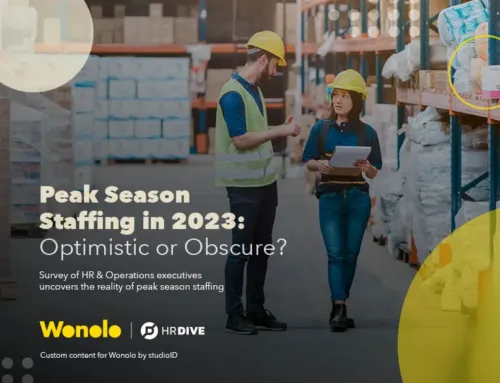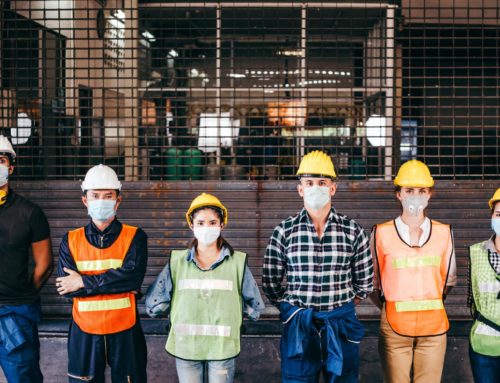Yong Kim
Over the past several months, Silicon Valley has been buzzing with news about California’s AB5, the new law that will change how employees and independent contractors are classified as of the new year. Many political and tech leaders are weighing in on Twitter and in the media every day, from gig economy executives to Democratic presidential hopeful Kamala Harris, and California Gov. Gavin Newsom, who signed AB5 into effect.
But most of the gig workers we’ve talked to don’t know that AB5 is coming. These are the people who depend on flexible shifts to make ends meet.
There are over 1 million people in California whose livelihoods will be directly and immediately impacted by this law. At Wonolo, we serve tens of thousands of frontline workers in the state of California, and we wanted to hear their perspectives. So we surveyed more than 600 gig workers about how they feel about gig work overall, their awareness of AB5, and their thoughts on worker classification in general.
What we learned is shocking: 77% of gig workers surveyed were not aware of California’s AB5 law.

The survey also gave us unprecedented insight into what motivates people to do gig work in today’s economy, and what they stand to lose when AB5 becomes the law in January.
People participate in the gig economy for three key reasons
Very little research has been published on what people, particularly frontline workers, enjoy about the gig economy. At Wonolo, we believe the wants and needs of people working these gigs should be a key consideration for the policymakers deciding their fate. Since AB5 seeks to reclassify some independent contractors as employees, we surveyed the Wonolers using our app to learn more about what motivated them to pick up gig work in the first place.
We found out many workers are turning to the gig economy because they value flexibility. An overwhelming 87% of survey respondents told us the freedom to decide when and where they work is important to them when selecting a job. And the top two reasons respondents said they like being gig workers are the freedom to choose when they work and the flexible hours.
Another common response was that gig work offers individuals opportunities for growth. Of those surveyed, 73% said gig work provides them with professional/skill growth, and 59% said gig work apps have helped them improve their resumes.
Finances are also a key motivator. We learned that people rely on gig work to pay rent, earn their primary source of income, pay off debt, and afford childcare.

When asked what would happen if they could no longer be a gig worker, the top response was that people would no longer be able to pay rent. One respondent told us that when the law is enacted at the beginning of 2020, many gig workers will experience increased financial burdens, and will struggle to pay rent, pay off debt, save for retirement, and earn disposable income.
Few people are aware of AB5; those who are familiar with the bill have mixed feelings about its implications
Only 23% of the 600 California gig workers we surveyed were familiar with the state’s AB5 legislation. We found this deeply troubling that potentially three-quarters of today’s 1099 contractors do not know how their lives will change come January.
Still, we wanted to dig deeper to learn about how gig workers feel about the debate at the root of the AB5 conversation: whether the legal system should classify gig workers as independent contractors or employees. We found out that the people we surveyed do not have a strong affinity for either worker classification. When asked if they prefer 1099 or W-2 status, almost half of survey respondents said they were neutral. While 39% had a slight or strong preference for 1099 classification, just 15% — the smallest response by far — would prefer W-2 status. This finding is significant because AB5 seeks to reclassify many 1099 contractors, even though this might not be their preferred outcome.

Since our survey showed the majority of gig workers don’t know what California’s AB5 law is, this could indicate a few different things. People might lack a clear understanding of worker classification and need better education around the difference between 1099 and W-2 statuses. Other possibilities are that workers don’t have a strong tie to either classification or that neither status fits workers’ needs.
Blue-collar 1099 contractors stand to lose the most with the enactment of AB5
While the AB5 conversation has primarily focused on improving conditions for drivers in the gig economy, other types of workers, such as people picking up labor, manufacturing, warehouse, and delivery gigs, have largely been left out of the conversation. AB5 does not address the needs of many of these workers who benefit from flexibility and autonomy, resume-building opportunities, and diverse job options.
Ultimately, what this survey showed our team at Wonolo is that we need a better solution to the worker classification problem — one that isn’t solved but actually made more complicated by AB5. The binary system is not working. We understand that 1099 is not ideal for many workers denied various protections or access to benefits at work, but W2 is also problematic for workers, especially at Wonolo, who want flexibility and the freedom to test the waters on a job before committing to it. One possible solution could be creating an entirely new worker category — a third classification of work. Recent legislation in New York called it a “Dependent Contractor,” giving workers flexibility and access to various worker protections and the security of benefits like health care and retirement.
At Wonolo, we are firsthand witnesses to how today’s frontline workforce — whether classified as 1099 or W2 — is underserved by outdated labor codes and a lack of quality-of-life programs. We look forward to continuing to be a vocal leader on these topics by listening to and providing a voice for the most vulnerable and deserving group of people in today’s workforce.


![[Report] Beyond the Gig: Exploring Reliable Work Options for the Modern Workforce](https://info.wonolo.com/wp-content/uploads/2023/10/Worker-Preferences-Report-Header-Image-500x383.png)



